
Covering the 12th Annual FringeNYC, Which Ran August 8-24,
And the FringeNYC Encore Series Running Aug. 28-Sept. 16
This Page Was Most Recently Updated: Thursday, Octoberer 9th 2008
Copyright © 2008 Hy Bender
Email: hy@hyreviews.com
Please click the links below to jump directly to what you're after:
Best Video Promos & Sneak Peeks
Notable FringeNYC Comedy Shows
Shows That Sold Out Performances
Other Sites:
FringeNYC 2008 Coverage, Page 1
I've assigned all reviewed shows one to four stars, using the following rating system:
**** = Transcendently Great
*** = Solid & Worth Seeing
** = Unless Your Relatives Are in the Cast, Think Twice
* = "I Wanted to Kill Myself"
Each review includes a show's Web site address and a representative photo. Clicking the address will open a new browser window taking you to the show's official site. Clicking the photo will open a new browser window taking you to the show's listing on the FringeNYC site. You can use the latter to see remaining showtimes and purchase tickets.
In addition, you can find below photos & links to some of the more intriguing productions debuting this weekend. Each show will be rated & ranked within 24 hours of being seen.
Please keep in mind these reviews must be written in a hurry. If you spot any factual errors, please don't hesitate to let me know by emailing hy@hyreviews.com. I'm always happy to make corrections and updates.
|
Rating: *** |
This one-man show from a novella by Joyce Carol Oates (who was in the audience for opening night) is adapted and performed with skill by Bill Connington.
The story isn't about zombies in the conventional sense, but a pedophile and sociopath named Quentin P. After undergoing a brutal mugging, Quentin has a pivotal thought:
I was at home in bed, bruised, bleeding...That's when the idea to create a zombie for my own purposes first came to me in a brainstorm to change my life. Jesus, at such rare times you can feel the electrically charged neurons of the pre-frontal brain realign themselves like iron filings drawn by a magnet. Zombie. Make a zombie. Create a zombie. Someone to fulfill my every need.
But how to do it? You would want a healthy young specimen. Male. Of a certain height, weight, body build. Somebody with fight and vigor in him. And well hung. Somebody from out of town—a hitchhiker, a drifter, or a junkie...somebody nobody gives a shit for. Somebody who should never have been born.
That's the who. Now for the how...I decided to go to the psych library to look up lobotomy...You want to know how to create a zombie? You stick an ice pick in his eye...
Through Connington's chillingly methodical monotone performance, we're led through the various attempts by Quentin to create his zombie—but all the while, it's clear who the living dead in this story really is.
It's virtually impossible to make a flat tone consistently compelling for an entire hour, and the show suffers a bit from that. Along the same lines, Quentin as a character is so relentlessly unsympathetic that he becomes somewhat cartoonish instead of a three-dimensional person (as opposed to, say, the anti-hero on Dexter, a TV series rightly famous for its nuanced portrayal of a serial killer).
But those reservations aside, this is a gripping and unique show, and worth catching.
13. Woodhull: A Play About the First Woman Who Ran for President
Rating: *** |
I'd never heard of Victoria Woodhull, but this play makes clear she's a fascinating character in American history. The first woman to run for President—back in 1872—Woodhull was a former prostitute, a madame, and a Red who helped publish Karl Marx's Communist Manifesto in the US.
But she also had a number of ideas that at the time were shocking but we now embrace, such as championing equality, public housing, and sexual freedom. In addition, her running mate for Vice President was a black man: the legendary Frederick Douglas. And her supporters included women suffrage leaders Elizabeth Cady Stanton and Susan B. Anthony.
Playwright Liza Lentini admirably works hard to show us different sides of Woodhull, from her beneficent deeds to her inner demons. Unfortunately, Lentini takes an almost journalistic approach, failing to make a stand about who Woodhull really was and effectively saying, "Here are the historical facts; audience, you decide." Katherine Barron, the actress portraying Woodhull, adopts a similar approach; and so someone who in real life was undoubtedly a vibrant force of nature comes across on stage as overly wooden and a cipher.
Faring much better is Woodhull's sister Tennessee, played brilliantly by Rachel McPhee (below left).

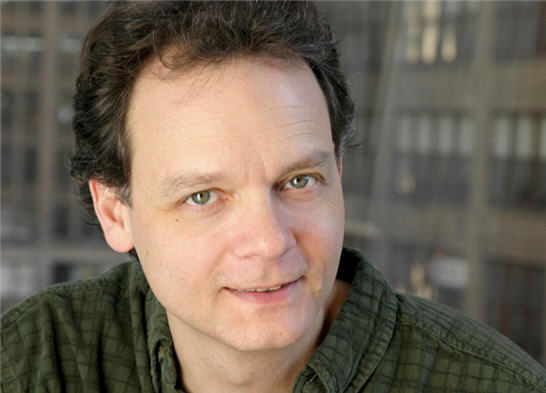
While Woodhull has the brains between the two, Tennessee has the heart. And thanks to McPhee's wonderful performance—along with Tennessee's elderly lover Commodore Vanderbilt, played with equal brilliance by Hugh Sinclair (above right, sans "old man" makeup)—the production maintains vitality amidst the various historical events.
The relevance of this play during an election year that includes Hillary Clinton and Barack Obama is obvious. And a great deal of the information is gripping.
With some work by the highly capable Liza Lentini to focus less on Woodhull as an icon and more as a passionate and flawed human being, this play could have potential beyond the Fringe.
Meanwhile, come see it to learn things you never suspected about American politics and people in the 1870s.
|
Rating: *** |
In 1958, Samuel Beckett debuted his one-act play Krapp's Last Tape, in which an aging actor pulls out a tape recorded when he was 39 and makes scathing comments about the thoughts expressed by his younger self.
In this one-man show, Michael Laurence is actually is 39; and he both examines memories of his previous years and records his current thoughts as fodder for his future self's nasty remarks—while trying to make sense of it all and possibly choose wiser paths.
Thirty-nine is a tough age for a struggling actor in New York—no longer young enough to be optimistic about changing the world, not yet old enough to settle. It's epitomized by this simple story Laurence tells of his youth:
Kendall was the love of my life. She was 11, and I was 7 and impossibly in love with her. It was my birthday and Momma had made us cake. Kendall held out two slices and said, "Do you want the big piece or the little piece?" I said, "I want the little piece now, and I want the big piece later." Kendall said, "You should have the big piece now. It's your birthday." I said, philosophically, "No. Always save the big piece. That way you'll have it for later." She said, "You'll never eat it if you're always saving it. You should have the big piece now."
I ate the little piece, and saved the big one for later.
Much later.
I'm still saving it.
I'm 36 years old. And I'll never eat it.
Kendall grew up, traveled the world, wrote some books, won a Pulitzer, raised a family, and made billions of dollars. Kendall had her cake and ate it too.
I'm 36 and can't fold a shirt.
In another memory trip, Laurence at age 37 tells his wife that he thrives best in the role of a student. His wife responds a few days later by giving him what looks like an adult course catalog, and he's delighted:
What a tender and thoughtful gift. My wife listens to me. She understands me!
I thought about the august and intellectually rigorous class I might choose. Something like Kierkegaard's Ambivalence: A Lutheran Perspective or Privacy and Surveillance: A Global Analysis. Or maybe something just fun, like The Vampire in Modernist Cinema and Literature.
Then my wife opened the catalog, told me she'd already picked the course and signed me up, and that I'd love it. "See? I highlighted it."
It was Act Your Age: Tools for the Eternal Adolescent.
The monologue zigs and zags, sometimes digressing uselessly, but every now and then it hits the mark with a force that may haunt you for months afterwards.
As for the acting, Michael Laurence gives a smart, disciplined, and memorable performance.
If you can be patient with the lags, this is a show worth experiencing.
15. The Fabulous Kane Sisters in Box Office Poison
Rating: *** |
Aside from China: The Whole Enchilada, this show has generated the most positive buzz throughout the festival.
It'd be very hard to live up to all the hype; and so, in all honesty, I found it a bit of a letdown. The script is by the two stars, who are long-time actors but first-time writers; and that's evident in the production, as there's virtually no story worth mentioning.
What does work, though, are the thoroughly hilarious look and performances of the leads, Marc Geller and Bill Roulet, who do the show in drag as "identical twin sisters." No words of mine will do justice to this spectacle, but you can get a sense from this production photo:
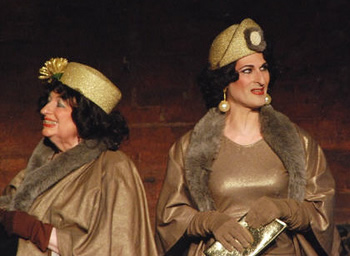
Bill Roulet and Marc Geller
In burlesque style, the show is crammed with puns, very old jokes (e.g., one scene closes with Geller saying, "I want to die in my sleep like my father did, not screaming like his passengers"), and ribald lines (e.g., Geller tells a good-looking guy "I lost my virginity a long time ago, but I still have the box it came in").
There are also many other fine performers—the cast totals 13, which is a small army for a Fringe non-musical. Among them is Zach Kleinsmith, who virtually creates a whole other show as the newscaster; and the gorgeous Marta Reiman, who doesn't get to demonstrate her range in this over-the-top farce but I happen to know is one of the most talented actresses in New York.
Bottom line: If your focus is on freshness, depth, and great storytelling, this isn't for you. But if you're cool with gag humor, colorful characters, and raunchy gay silliness, this is the show to see.
|
therhino.org/schoenberg/Schonberg.doc
Rating: *** |
The rise of Nazism, and the subsequent Holocaust, forced many people to rethink their ideas about truth, justice, and reality.
Among those people was Arnold Schoenberg, a genius composer who believed music was imprisoned by melody and who strove to free it using atonality. The results could be hard to listen to: abrupt, unexpected, harsh. Just like life for many in 1930s and 1940s Europe.
The severity of his compositions—and the fact he was Jewish—forced Schoenberg to flee Germany to Los Angeles, a town more concerned with flash than substance. Schoenberg struggled for acceptance in the US; according to this play, he was seldom invited to give concerts, and a symphony conductor was fired for merely including one of Schoenberg's pieces. However, Schoenberg's work eventually had a profound and pervasive influence on modern music.
John Fisher—who both wrote this drama and plays Schoenberg with very credible intensity— juxtaposes the titan with a Jew of another stripe in Hollywood: Oscar Levant (portrayed by Matt Weimer). Levant was a wit famous for his light comedy and lightning-quick rejoinders on radio, movies, and TV; but he aspired to make a mark as a music composer. Levant pleads for Schoenberg to take him on as a student; and while deploring how Levant panders to his audiences, Schoenberg sees genius beneath the clowning.
Most of the 50-minute play crackles with fascinating thoughts from Schoenberg about art, its relationship to our everyday existence, and the choices we all make—such as Levant's struggle between being a performer who pleases people and a serious artist creating works that last. Here's a sample exchange about a piece of his Schoenberg has Levant play:
Schoenberg: Do you think it's ugly?
Levant: Well, it's different.
Schoenberg: Yes. But is it ugly?
Levant: Well, it's not...comfortable. It's not relaxing. It's not—
Schoenberg: Reassuring. Yes, you're right, it doesn't reassure. You don't know where it's going. Like life. It's not an abstraction, an escape. It's a confrontation. It goes where life leads, to the unknown. We think our lives are so set, so simple, and we flee from arbitrariness; but this music embraces it.
Levant: So you're saying you don't like music that's predictable; that's tonal.
Schoenberg: Oh, I do. There was a piece I heard in Berlin the night before I left. The most beautiful piece of music ever composed—a violin concerto by Beethoven. Beautiful. Furtwängler conducted it. Furtwängler! A good conductor, but he believes in Hindemith. Do you know what Hindemith wants to do with music? Something much more radical; but more practical. He says, "Don't be so elitist. What do you compose music for? You can compose for people to work, and for people to play. You can compose for people to go boating. You can compose for people to go shopping, and to calm people down on airplanes." That's not music! It's background, it's environment. This is what Hindemith wants to do with music. Scary. People say I'm crazy. But a man like Hindemith? Insane.
Levant: Well, we have stuff like that.
Schoenberg: Background music? Of course you do. Most of Gershwin.
Were the production to fully follow through on this theme, it could be magnificent.
However—to the immense disappointment of me and the friends with whom I saw it—the story doesn't end so much as abruptly lurch to a stop. When the lights came up, I at first couldn't believe the show was over. The build-up is terrific; but the conclusion isn't just unsatisfying but virtually nonexistent. This show cries out for a second act providing a genuine resolution.
Another problem is that we barely hear any of Schoenberg's music. In the first minute, we're told Schoenberg is the greatest composer of the 20th century; so why not give us the opportunity to experience his compositions?
Finally, Oscar Levant was famed for his razor-sharp remarks; but in this play, almost all the great lines are uttered by Schoenberg. It's not exactly shocking that the playwright gave himself the best material to perform. For the sake of the overall production, though, there should be a greater balance between the two men; more of a focus on Levant's struggle as artist; and possibly some lessons that Levant ends up offering to Schoenberg, as opposed to the script's current one-way street.
Considering the standard length of a serious play is 90-120 minutes, I'm baffled that Fisher would write a wonderful 50 minutes about two very different artists, but leave out most of Schoenberg's music, most of Levant's wit, and the entire second half of the show.
If you go in prepared for the huge letdown at the end, though, this play is worth experiencing for the fascinating ideas Fisher offers us via his portrayal of Arnold Schoenberg.
|
Rating: *** |
On the eve of their fourth wedding anniversary, a couple wakes up to discover their house has been divided in two by an impenetrable wall. The bed, the TV, the fish tank, even the fish in the tank—all split down the middle. But the TV still works, and the fish still swim...
The play focuses on the couple unraveling this mystery...and in the process, gaining increasingly deep insights about their marriage, and each other.
The metaphor is effective, and the story gripping—as is the grounded and heartfelt acting from Julie Jesneck and Adam Richman.
What keeps this from being thoroughly satisfying is the tale leaning too heavily on the woman's side—particularly in the last few minutes, creating an ending I flat-out despised. Considering the script is by Aron Ezra, who's a guy, that's especially surprising.
But if the play was tweaked to make the two sides more even, and the ending replaced with a genuine payoff for all the struggle endured—both by the characters and the audience—this could be something special, and worthy of life beyond the Fringe.
And even as is, I recommend being trapped for 90 minutes by Walls. It may make you think about relationships in new ways and consider tearing down some walls yourself.
18. Gem! A Truly Outrageous Parody
Rating: *** |
A musical parody of the 1980s cartoon series Jem and the Holograms (whose heroine's catch phrase was "truly outrageous!"), this gleefully over-the-top version stars Glennis McMurray as Gem and Eliza Skinner as her nemesis Spizzaz. McMurray & Skinner are an award-winning comedy duo who ordinarily make up musicals on the spot as I Eat Pandas—and do so brilliantly—so it's a great kick to see them act in a "real" musical, complete with garish costumes and wigs (the creations of Angela Harner and Todd Barnes) whose super-bright colors are pitch-perfect for a cartoon world.
Other NYC comedy giants in the cast include rising star Jeff Hiller (Late Night with Conan O'Brien, MTV's Boiling Points, FUSE's The PA, VH1; comedic horror musicals Silence! and The Children; UCBT-NY Harold team The Scam), who appears only as a video projection but nonetheless almost steals the show with his snarky performance.
There's genuine charm to a girlish show in which battles between good and evil occur via a "Who's the Best Band?" content. Writer/co-star Amanda Allen understands and respects this; and Gem! is very much a "feel good" production that captures the essence of its source material well enough to entertain even if you've never seen the cartoon.
Could there be more substance to the show? Absolutely. Gem! would be much stronger if Allen used the parody as a springboard to get to something deeper.
As is, though, this production is a 45-minute giggle. And there's nothing wrong with well-done fun.
|
Rating: *** |
Last year's FringeNYC was electrified by a four-woman improv comedy show titled Naked in a Fishbowl that was not only my favorite production of the festival, but—because each of the five performances was entirely different—ended up as 5 of my top 8 favorite shows of the 2007 Fringe.
The troupe had to split as soon as the festival was over, because Brenna Palughi went off to study acting at the prestigious Yale School for Drama graduate program; and a few months later, Lauren Seikaly became pregnant with her second child. However, the other two shining stars of the troupe, Katharine Heller and Lynne Rosenberg, continued writing and performing in New York.
The result of the latter is this comedic play, written by—to quote my review last year—the "sarcastic, sensitive, sexy Katharine Heller," and co-starring Heller and the "razor-sharp, fast-talkin', red-hot Lynne Rosenberg."

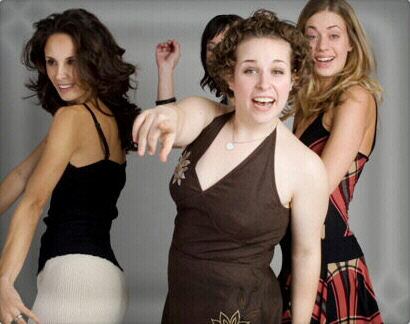
Katharine Heller and Lynne Rosenberg in last year's FringeNYC smash hit Naked in a Fishbowl...
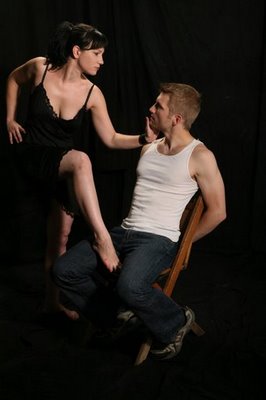
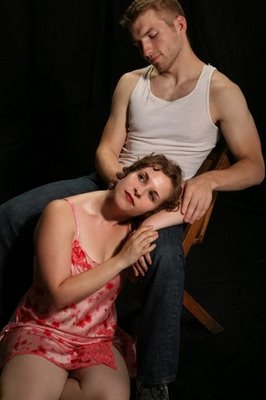
...and Katharine Heller and Lynne Rosenberg—with Tom Macy— in this year's The Boy in the Basement
The show is a sex romp that parodies romance novels from a feminist perspective. The fantasy-like tale revolves around four hot women finding a burglar in their basement. They capture him and tell him they won't call the cops—but only on the condition that he agrees to be their slave for the weekend.
The ensuing maelstrom of sexual activity and spiritual enlightenment is considerable fun. So are the performances of the always-wonderful Heller and Rosenberg, plus their "roommates" Meghan Powe and Anna Stumpf, their "slave" Tom Macy, the play's troublemaker Michael Solis, and narrator Nick Fondulis. Plus the direction by Nell Balaban is smart and compelling.
My main quibbles are that the material is a tad familiar, and a tad unsympathetic to men. Also, Heller resisted a pat happy ending, which is an impulse I appreciate; but I don't feel the play provided a satisfying conclusion to take its place.
Overall, though, this is an appealing and entertaining effort from first-time playwright Heller.
And I would recommend any production that includes Heller and Rosenberg, who are two of NYC's most lovely and luminous lights—and always, always funny.
|
Rating: *** |
It would be hard to go wrong with a show from Ted Greenberg, the Emmy Award winning writer for seven seasons of Late Night with David Letterman.
And Greenberg delivers, performing a mix of stand-up and shtick that garners lots of laughs.
The Complete Performer is a parody of typical NYC acts in small venues—improv, mind reading, card tricks, playing with the audience. It's essentially a comedy club act, but with gags in place of standard jokes. (If you're okay with having surprises spoiled, you can get a feel for Greenberg's approach by clicking here.)
My only major gripe is that the end of the show lacks a substantial climax; and more than most, Greenberg should understand the importance of a great punchline.
In the same vein, the show felt too short and one-note at 30 minutes. I would've preferred Greenberg went on for another 15 to build on the foundation he'd created and take the audience to a whole new level.
Then again, one can't get terribly upset with a show that leaves you wanting more...
If you'd enjoy quirky laughs from a seasoned pro, come catch this; and hang out afterwards to chat with Greenberg, who's one of the friendliest Emmy winners you're ever likely to meet.
|
Rating: **½ |
Review to come.
30. Perez Hilton Saves the Universe (Or At Least the Greater Los Angeles Area): The Musical
Rating: **½ |
As musicals such as The Producers and TV series such as Encourage have amply demonstrated, there's a lot of entertainment to be found in shows about show biz.
This musical comedy starts off on the same path, creating a wildly kinetic story about Perez Hilton, a blogger so popular that celebrities such as R. Kelly and the Olsen twins call in to complain if he neglects to write something about them for even a few hours.
Unfortunately, the tale goes careening off track with the introduction of a stale and painfully dumb plot involving Arab terrorists. My advice to the writers: Cut the awful Middle East material and stay focused on Hollywood.
Otherwise, this production offers a number of delights, including lively songs by Randy Blair (who is also Perez) and Zach Redler, snappy direction by Connor Gallagher, and a cast with some exceptionally talented singer/actors.
Of the latter, my personal favorite is Dana Steingold, who plays Perez's assistant but comes off as the star, virtually stopping the show every time she appears with her charisma, superb comedic timing, and Broadway-caliber singing voice. (If you're in the industry, hire this woman immediately...)
Also stellar are Andrew Keenan-Bolger, a magnetic performer who tackles multiple roles (including Zac Efron) with seemingly limitless energy; and Laura Jordan, who does a spot-on impersonation of Kathy Griffin that's consistently hilarious.
Perez Hilton Saves the Universe is one of the dozen FringeNYC 2008 shows extended for the Encore Series. If you're in the mood for something silly, and can overlook the out-of-place terrorist nonsense, this is worth catching.
|
playwrightsarena.org/third_left.html
Rating: **½ |
Review to come.
|
A Reality Chamber Opera
Rating: **½ |
As this show's title indicates, opera composer Jeffrey Lependorf has turned a podcast in which Tim Gunn comments on an episode of Bravo TV's Project Runway into a one-hour Sturm und Drang. The hyped-up drama of the opera music allows Lependorf to poke gentle fun at how Gunn—and, by extension, the entire fashion industry—places life-and-death seriousness on issues that most of us would consider minor or frivolous.
The effect is heightened by the fine singing of John Schenkel, who has a plastic comedic face that emphasizes Gunn's more absurd lines with wit and charm. You can get a feel for the whole show by simply imagining Schenkel (above) singing with expressive power Gunn-isms such as these:
I mean, this was extremely disrespectful and it really made me want to blow, and I was close to blowing, and there’s a whole thing with me and Angela and Vincent where I am challenging them to tell me what’s going on, again, this is now for the second time, and at this point the dress is much more fully developed and frankly speaking, it’s a homely bag of garbage—I'm sorry—and I say to Vincent, “this does not look like design, this looks like dressmaking, and not nice dressmaking.”
Give me a break, save it. And then these ridiculous epaulette sleeves—I mean, talk about “Beam me up, Scotty.” I mean, where were they going, to Judy Jetson's birthday party?
Lependorf also takes part in the ironic fun, playing his music live on piano. (To hear an excerpt from the production via iTunes, please click here.)
Main problem: This is a one-joke show, and so really drags at its hour length. (Especially when you realize the entire episode Gunn is commenting on, sans commercials, runs only 45 minutes!)
The production also tries too hard to make Gunn appear silly, when the truth is Project Runway really does have genuine drama amidst the frills and fluff.
If Lependorf wants to "make it work," he'd do well to edit Gunn's monologue into something much tighter—say, 20-30 minutes—and that highlights not only the ridiculousness of the reality show but also the fascinating aspects that make us keep tuning in.
If Lependorf then applied the same technique to a few other choice targets—say, a pundit debate on The McLaughlin Group—and Schenkel performed them back to back for a more meaty and diverse hour, I'm guessing the result would be a livelier production.
That said, this unique show is worth experiencing if you have the patience to sit through 60 minutes for an extended giggle...and for the delightful company of two very sharp musical talents.
|
Rating: **½ |
Nobody gets to choose his or her relatives. But some of us are luckier than others.
Brad Lawrence definitely didn't win the lottery in this area. His autobiographical one-man show focuses on his "trailer trash" family in Missouri's Ozarks, who Lawrence essentially describes as having the sensitivity of rocks and the preservation instincts of lemmings.
Over 50 minutes, Lawrence tells of his redneck kin's self-destructive tendencies, which include binge drinking, drug abuse, drug dealing, very bad driving, setting things on fire, and a tendency to get shot, shoot others, and shoot themselves.
Lawrence describes these over-the-top issues with wit.
However, he portrays the folks with whom he grew up virtually as cartoons, failing to help us understand them as human beings, and almost never demonstrating feelings for them beyond contempt.
Worse, Lawrence neglects to spend time and effort to make us care about him, and maintains a veneer that prevents us from really getting to know him. For example, the handsome Lawrence performs his monologue in a crisp business suit, and speaks in a pleasant radio voice that doesn't have a hint of an accent. Yet about 20 minutes in, he mentions in passing that in his home town of Fredericktown "my Southern accent was thick and trashy when I was a kid." I wish that he'd spent even 30 seconds talking to us in that accent, just to give us a glimpse of some of the other layers lurking beneath the polished presentation.
It isn't until the final minutes of the show—after numerous tales that don't go much beyond about how dumb and brutish his relatives are—that Lawrence lets the mask down a bit and gives us this:
I date a college student who, upon graduation, whisks me away to Washington, DC, where I meet Kennedys and diplomats and Congressmen. And I follow her from there to New York, where she attends law school. And it's then the relationship breaks down; but we try like hell to save it. In couple's counseling, the question is asked, "What is your biggest issue with Brad?" And she says, "Brad is always on the outside looking in. Wherever we go, whatever we do, whoever we meet, he is always a stranger..."
I can't argue. I know what I am. I'm the one who crawled out of the dark wood, and filed down his claws, and filed down his fangs, and learned to ride the subway in midtown and go to work. And pass.
That's fine, honest writing.
But I wish Lawrence had started with this, to provide us with context and allow us to connect with him; and then dug beneath the surface facts of his family's misadventures to offer insights to both us and himself.
That said, all of us are in some ways scarred by childhood; and there are times when we all feel like outsiders or imposters. It's capturing that universal feeling of embarrassment, even horror, about the hidden behavior of family members that gives this show its strength.
|
An Intimate Experience with the Fab Four
davejay.com/#johnpaulgeorgeringo
Rating: **½ |
If FringeNYC gave an award for balls, it should probably go to this one-man show by Dave Jay.
After all, would you have the guts—or the gall—to get on stage with nothing but a guitar and impersonate four of the greatest musicians of all time? Not to mention, try to live up to guys who were famous for their quick minds and wicked wits by taking on audience questions for each Beatle?
And would you even dare consider performing your own original songs during question lags and pretend they were written by The Beatles?
Jay's excuse for the latter is that he can't get the rights to perform genuine Beatles songs; and further, that even The Beatles don't own the rights to their songs anymore.
But I imagine it tickles him to bring in audiences using the fame of rock icons and then have them listen to his own material.
This isn't parody; it's more like Beatlemania. Except instead of simulating a Beatles concert, Jay tries to make us feel like we're having a personal conversation with the legendary band.
Frankly, when the show began, it struck me as kinda creepy. Jay encouraged the audience to ask questions of any of the four Beatles by name; and when people complied, saying "I'd like to talk to George" or "I'd like to speak with Ringo," it was a bit like having Sybil on stage while folks requested to chat with one of her multiple personalities.
Adding to the weirdness was the fact that, in real life, two Beatles are no longer with us. I wondered if anyone would address this elephant in the room. About two-thirds into the hour-long show, an audience member did, asking John Lennon what it was like to be shot. Jay didn't miss a beat, replying with a long and clearly rehearsed answer.
To the extent this show works, it's because Jay has done extensive research and thought a great deal about The Beatles (with the help of his writing collaborator and director, Bradley Calcaterra). Depending on the questions tossed out by your audience—and, for that matter, yourself—you can learn a lot of intriguing trivia. For example, when someone asked how the band was named, "Paul" explained The Beatles was inspired by Buddy Holly and the Crickets; and it was wordplay, having the double meaning of the insects and of a musical "beat."
On the down side, Jay isn't a great actor, and his impersonations of the Fab Four are only so-so.
And, as you might expect, his original songs don't hold a candle to the genius of the real Beatles.
Also, Jay takes care to not say anything controversial or offensive; which means you shouldn't expect any great insights, or to be deeply moved.
The show is an interesting curiosity act, however; and it's both informative and moderately entertaining. If you'd like to try something different, JohnPaulGeorgeRingo is worth experiencing.
|
Rating: **½ |
Review to come.
48. Kansas City or Along the Way
Rating: **½ |
I had high hopes for this production—about life during the 1930s Great Depression—before the festival even began based on the wonderful Woody Guthrie-inspired songs on its Web page, co-written by playwright Robert Attenweiler and the superb Adam Groves (above right), who also performs them. To experience these yourself, please click the following audio links:
However, it turns out these aren't samples, but all the songs in the show.
The rest of the play mostly consists of long monologues, alternately performed by the versatile Groves and actress Rebecca Benhayon. These are poetic, but almost relentlessly bleak, and I'm guessing work better being read on a page than spoken for 45 minutes to an audience. That Attenweiler has two actors on stage but chooses to have them ignore each other for the first two-thirds of the production, giving up the opportunity to light up the room with the chemistry of interaction, ultimately struck me as self-indulgent.
That said, the writing really is good; and some of the monologues shine. (For two examples, please click here and here.)
If you like what you hear, and you're okay with a format that arguably works better for print than theatre, this is worth considering.
|
Rating: **½ |
Twelve years after Eve Ensler's The Vagina Monologues set the theatre world on fire, Lindsay Burns wants to know why instead of enjoying progress, the cause of feminism has increasingly lurched backwards. With Britney Spears flashing her "clitorati" and Oprah championing the term vajayjay (originally popularized by a writer on Grey's Anatomy simply as a way to get past ABC's censors), how much worse are things going to get?
That's the concern Burns explores in this one-woman show, as she performs her own monologues ranging from worries about the fate of Roe v. Wade, to new drugs doing away with periods, to high school girls making out in public with each other just for the sake of being popular.
Burns makes some fine points. However, she neglects to mention that progress really has been made. For example, Oprah is a powerful champion and role model for women. And so is Hillary Clinton who, if she didn't have the bad luck of going up against a charismatic superstar this year, would probably be the first Democratic nominee for President.
Also a problem is Burns' consistently oh-so-ironic tone, which comes off as patronizing and, frankly, annoying. Particularly since her observations aren't sufficiently fresh and deep to support it.
There is worthwhile material here, and a number of chuckles throughout. But after this 80-minute show is over, you're unlikely to walk away with any genuine insights.
That said—and for whatever it's worth—the women in my audience appeared to enjoy this a lot more than I did.
50. Mirrors of Chartres Street: Faulkner in New Orleans/New Orleans in Faulkner
Rating: **½ |
Review to come.
51. RadioTheatre Presents The Mole People
Rating: **½ |
RadioTheatre is a vibrant force for NYC stage shows that cleverly combine talented voice actors with carefully engineered sound and, um, so-so scripts. (Two out of three...)
The philosophy of the company is best described by its Web site:
RadioTheatre is not traditional theatre. And it's not an actual recreation of old time radio shows.
Rather, we are inspired by the artistry created during the golden years of radio, when sound was king and storytelling—along with great voices, music, and sound effects, as well as the imagination of the audience—provided memorable theatrical experiences.
It's not much different than the earliest form of theatre—storytelling around a campfire in the dark. However, we do add a few 21st century touches, such as fully scored orchestral soundtracks, a plethora of aural effects, and even a few visual effects.
As for content, we draw our inspiration from the pulp fiction era when genres such as action, horror, science fiction, and crime dominated American pop culture—all genres still thoroughly mined by today's movies, TV, and literature, but generally ignored or spoofed by the theatre world.
I'd just add that with every gain, there's a loss. Television has brought the universe into our living rooms in a revolutionary way; but by doing so, it virtually destroyed radio as an artistic medium for telling stories. RadioTheatre reminds us of the special power radio used to have; and as a result, I've been a fan of the company for years.
That said, I was disappointed by this particular production. The first RadioTheatre show I've seen that doesn't have multiple actors, it severely suffers from the lack of characters interacting with each other. And the script is the worst I've ever heard from the company, offering lots of drawn-out hype and nonsense but little genuine drama. And while the solo actor, Jerry Lazar, is terrifically talented, the script plays into his hammier aspects, which serves both him and the show poorly.
The basic concept is a good one, though, speculating that beneath the glitter of New York is a seamy underworld where any of us can quickly be reduced to a tasty morsel for some animal or fiend. Here's a choice excerpt:
Giant rats! Alligators! People attacked! Missing! Eaten! Right here under New York City. Under Macy's, under Broadway shows, under the Metropolitan Museum. Under every church and school. Under our very feet.
Also fine is—as always—the sound, crafted with skill and loving care by Dan Bianchi.
If you're visiting New York and have never seen a RadioTheatre show before, I'd say it's better to catch this one than to miss out on the entire experience.
But if you live in NYC, I'd recommend waiting to attend a different production—say, War of the Worlds or King Kong—when RadioTheatre puts on more shows post-Fringe.
Please also note that you can listen to RadioTheatre shows anytime from the comfort of your home via the company's podcasts. To check these out, please click here.
|
Rating: **½ |
This play with songs is a loose, charming comedy from an unusual theatrical team: Its writer/producer/co-star, Peter Mikochik, is legally blind, and so are several of the other cast members. In fact, this show was originally created for the biannual Blind in Theatre festival that takes place in—of all places—Zagreb, Croatia.
The story is threadbare: Two blind men—played with extreme laid-back cool by superb theatre veterans Danny Bowes and Robert Pinnock—stow away on a ship to pursue a woman's sexy voice, and use their handicap to get jobs on the ship's band even though they have no experience (because "everybody knows it's hip to hire blind musicians"). There actually isn't much more to the script, so if you go to the theatre for great writing, this isn't the production to choose.
More interesting is the inside joke of the show. In real life, Bowes and Pinnock can see; but the play's actual two-man band can't.
The latter consist of Peter Mikochik on guitar and bass, and George Ashiotis on keyboards and digital drums; and their music and singing is by far the best part of the show. One song in particular is a showstopper—Look Into My World, which is written, played, and sung by George Ashiotis, and conveys so much heart and soul that it's almost worth the price of admission.
Also highly memorable is the beautiful Alexia Tate, who portrays the ship's fiery captain, and demonstrates both star quality and a gorgeous singing voice.
Again, the story is almost nonexistent. Most of the songs aren't noteworthy, either. But the musical quality of the band, the talent of the lead actors, and the warm camaraderie radiated by the entire cast makes this a unique feel-good show worth considering.
|
jenniferandbrigid.com/id4.html
Rating: ** |
Comedic partners Brigid Boyle (left) and Jennifer Subrin (right) are very appealing, as well as a visually amusing duo—statuesque Brigid is 5'9" and adorable Jennifer is 5'.
And their idea for this show is a fine one, playing two British waifs named Willy and Willy who, "born unto the loins of unfit mums have for years known only the sadness of St. Francis' Home for Underprivileged Boys." For some mysterious reason, Jennifer also suffers from a perpetual lack of trousers.
The problem, pure and simple, is that their material throughout is mildly amusing instead of laugh-out-loud funny. It's clear they find the stuff personally hilarious; but it plays more as an inside joke than great comedy.
These two gals are smart and talented. They've also got creds, having trained at UCBT-NY and been members of improv troupe Ponyboy. Brigid is currently a member of Magnet improv troupe Yes Andersens and the show Focus (an improvised & drunken version of The View).
I therefore simply urge them to be more ruthless about their writing; and to relentlessly test out and hone material before tough audiences before bringing bits to a major spotlight such as FringeNYC.
That said, Boyle & Subrin have a lovely, warm chemistry; and I hope they keep working to perfect their craft.
54.
Thumbelina: The Story of a Brave Little Girl
elephanttheater.com/thumbelina.htm
Rating: ** for adults, *** for its target audience of kids age 3-8 |
This 30-minute show was designed to travel around hospitals in New York and entertain sick children aged 3-8.
And after chatting with its author, the lovely & luminous Liza Lentini (Artistic Director of the Elephant Theater company—and also the playwright of a wildly different production at this year's festival, Woodhull: A Play About the First Woman Who Ran for President), I have no doubt Thumbelina succeeds for its target audience. This tale of a very, very little girl who becomes separated from her mother and must exercise wit, wiles, and courage to get back home is sure to be resonant for children stranded in a hospital and battling diseases that appear inexplicably malevolent.
At the opening Fringe performance I attended, though, the audience was 100% adult. That's not who the show is aiming for; but since it's the reality, I feel impelled to effectively kick a puppy here and mention the tale has logic and consistency issues.
For example, when Thumbelina encounters a spider, there's an awkward and annoying speech about how spiders in houses are good for the environment because they kill nasty bugs, but that spiders in remote woods can be dangerous. The truth is spiders that bite reside even in households, and care must be taken anywhere to differentiate between arachnids that help and harm people.
Another problematic scene involves a "Mr. Mosquito" who threatens Thumbelina and a sparrow. Why a tiny mosquito would worry a sparrow many times its size is never explained. Anyway, instead of using her wits, Thumbelina wins the day by simply swinging her fists and legs and beating the mosquito to within an inch of its life while chiding "him" for wanting to suck their blood. In fact, it's only female mosquitoes who suck blood; and they do it to get nutrients that help them develop their eggs—i.e., have their own children.
I was also a bit appalled that the "costumes" of the actors consisted of t-shirts advertising the company's Web site. That's not a great way to promote suspension of disbelief.
All these points may strike you as excessive nit-picking; but there were enough less-than-perfect choices sprinkled throughout to make the play feel random and unfocused instead of expressing a clear vision.
On the up side, all four performers—Mollie Lohinski as the heroine, Christine Seisler as the mom, and Chris Van Jura and Cheri Haller as a variety of characters—are adorable and very kid-friendly. And at key points the show actively encourages audience interaction (e.g., clapping, shouting), which children will love.
Bottom line: This isn't a show you want to attend by yourself. But if you bring kids—especially little girls—you're all likely to have a good time.
|
Rating: ** |
The most interesting aspect of this play is its attempt to show us the inner mind of its main character Brian—whose name, of course, is an anagram for "Brain" (above left, played with nerdish energy by David Jenkins). Brian's a successful architect because his insightful visions result in designs no one else can dream up. This blessing is also a curse, though, because he can't turn the visions off; for example, when Brian eats a sandwich, he can "see" it enter his body and and slowly get digested.
Thanks to director Jessica Fisch and video designer Jesse Garrison, we can see these things too—via two large projection areas above the stage.
Unfortunately, the choices for images aren't sufficiently disciplined. A prime example is described by Billie Cohen of Time Out New York, who began her own review as follows: "I never thought I’d be watching a play with my hands in front of my eyes; but when grotesque tumors are flashing by on slide projections, you do what you gotta do." Indeed. So I appreciated the intention, but not so much the execution.
The same goes for the other external projection of the main character's thoughts: a redheaded man who only Brian can see and hear. Brian believes the man represents the father he never knew. Towards the end, we learn a different and much more chilling explanation—and it's the most effective scene of the play.
Until then, though, the redheaded man's dialogue isn't especially interesting...or even consistent.
Along similar lines, the plot is riddled with logic and credibility problems, ranging from the inexplicable behavior of Brian's psychiatrist (played in such an irritating over-the-top manner that I began to cringe every time she appeared) to Brian's eventual love interest, whose motivation initially makes no sense and, after the play's big revelation, still makes no sense.
More successful are most of the performances. James Edward Shippy (above right) gives the story much-needed weight and vitality with his down-to-earth yet energetic portrayal of the roommate. Bruce Bluett delivers two markedly distinct performances as the redheaded man that are both highlights of the production. And the playwright, Halley Bondy, works double duty by giving a compelling performance as Brian's unlikely girlfriend.
Especially considering this is Bondy's first produced play, I applaud her ambition in trying to do a bunch of different things, ranging from attacking drug companies to working with multimedia to philosophizing about the value of lies. But for future plays—and I hope more will come—I'd recommend being more focused on creating believable characters and an internally consistent world.
Of course, this is merely my opinion. At the end of the festival, The Redheaded Man won the FringeNYC 2008 for Outstanding Playwriting; and it's one of the dozen shows selected for the Encore Series. If you'd like to judge for yourself, the production is running through September 13th.
|
Rating: ** |
The lovely Charlotte Barton-Hoare is one of the most appealing and delightful performers at the festival. For example, after arriving from the UK only shortly before her run began, and knowing no one in NYC, she managed to generate a sell-out crowd for her opening night through the sheer force of her charm as she handed out postcard after postcard to folks waiting on line for other shows.
However—at least to my eye—she's ill-served by her own material, which mixes gothic darkness with raunchy farce but doesn't quite hit the mark on either genre.
I'd suggest she try hooking up with established professional writers, because she's a comedic performer with great potential.
Meanwhile, if you're looking to cast someone who can be simultaneously
menacing and endearing—say, to host a children's TV horror show, or provide
comic relief in a serious film—the highly talented Ms.
Barton-Hoare is
well worth considering.
|
howlingmooncabcompany.com/pawnshop.html
Rating: ** |
This play is about a group of colorful characters on the fringes of New York—a schizophrenic homeless man, an EMT, an egg salad sandwich vendor, a burnt-out gonzo journalist, and a mute accordion player serenading the dead—who keep each other company at Port Authority.
The drama is meant to be deep and moving. But, at least to my ear, it came across as a collection of cliches and stereotypes; and at its length of 90 minutes, about 45-60 minutes too long.
My favorite elements of the production were two performers: Tim Cain as the Emergency Medical Technician and Gina Samardge as the non-speaking accordionist. They both brought light and humanity to characters that could easily have devolved into cardboard figures.
Otherwise, though, I suspect you'd learn more, and have a better time, by simply hanging out at Port Authority yourself for 90 minutes.
|
Rating: ** |
Before the festival began, this show got a lot of attention for its fabulous production photos—such as the one above, and also these:
However, interest waned when Gratuitous Novelty became (as far as I know) the only show at the festival to stand up its audience. Specifically, the troupe failed to appear for its second scheduled performance on Sunday 8/10/08, causing about 20 audience members—including me, and a reviewer from The New York Times—to have wasted considerable time getting to the most remote venue at this year's Fringe (Spiegelworld at South Street Seaport).
Also not great was that zero explanation was provided for the last-minute cancellation. A subsequent email to the star and choreographer, Rob Davidson, yielded this official response: "Our company was traveling in from South Jersey in extreme weather conditions and we were involved in an accident. Everyone is ok but one dancer will have to be replaced for the remainder of the festival. As they say 'the show must go on!'" (Except, of course, it didn't on Sunday...)
When I gave it another go on Tuesday 8/19, there was another troublesome sign: no program guides. That meant the audience was provided with zero information about the production or its participants. When I inquired afterwards, I was told program booklets did indeed exist...but no one knew where they were.
As for the show itself: At least for the performance I attended, the energy just wasn't there. The choreography didn't live up to the wonderful production photos; the dancing was at times awkward; and the ideas (such as flashing the audience, or bringing up select members of the audience to embarrass them) leaned toward the juvenile.
On the up side, the four performers are visually striking. Rob Davidson is the centerpiece with his compact, muscular body and nipple rings. But also memorable are each of three beautiful women—Kristen Szmak (wearing the hat), Brittany Waldron, and replacement dancer Ashley Vermeulen. Their poses, hot outfits, and facial expressions were almost worth the price of admission.
This show has definite potential. But I wished for a lot more substance beyond the flash.
|
Rating: *½ |
By far the best aspect of this odd comedic play is its star, Neil Casey (above left), who's one of the sharpest and most likeable performers in New York.
In fact, it was a bit painful for me to sit through this knowing Casey is a comedy genius who, as a member of two of the best improv comedy troupes in the country (Death by Roo Roo and Krompf), could make up material in seconds that would be immensely more funny and interesting than the dreadful script he was performing.
The latter—which was in no way written by Casey—involves the challenges of graduating college and entering the workforce. That's a subject that's been tackled brilliantly by such tales as The Graduate; but here the handling is consistently sophomoric, offering no insights and, worse, almost no laughs. (Sample dialogue: "Choices are hard. It's difficult to choose. And that's the choosiest choice of all.")
I could go on, but don't want to be mean here.
Suffice to say, avoid this.
But do come see Neil Casey at his best—every Friday night in Death by Roo Roo at the Upright Citizens Brigade Theatre.
And, with any luck, Casey will also appear in plays, TV shows, and films in the future that make better use of his enormous comedic and acting talent.
|
Rating: *½ |
TV soap opera actress Jennifer Bogush (As the World Turns, Guiding Light) wrote and stars in this dark comedy, presumably to get more industry attention.
Unfortunately, the story is dreadful. Bogush plays a self-centered woman who opts to seduce a guy in the hospital waiting room while she waits for her grandfather to die—and then, for reasons I couldn't fathom, we're supposed to feel bad for this utterly unsympathetic character..
To make matters worse, Bogush's performance is at times painful. Since her character doesn't listen to anyone, Bogush doesn't either; but what makes for a great performance largely depends on paying attention and reacting in the moment to one's fellow performers. Tossing away this basic principle makes the 40-minute play feel about 30 minutes too long.
The saving graces of the production are Bogush's sensuality, which comes through despite her over-the-top "solo" performance; male lead Jeff Branson, a star on the soap All My Children who doesn't really shine here but is always an enjoyable presence on stage; and Joe Tuttle, the only actor in the production who excels, bringing a fluid ease and charm to his Death character that generates most of the (rare) laughs in the show.
All these talented performers—including Bogush—deserve better material than this.
And you do too.
61. The Naked Dead Elephant in the Middle of the Room
Rating: *½ |
How do you get into the FringeNYC Festival while doing as little as possible?
That's the question posed by this meta-comedy.
And, to my considerable disappointment, that's precisely what it delivers—as little as possible.
There's no story here. And the acting, set, costumes, etc., are all minimal.
What we get is the playwright reading us the stage directions and dialogue for this threadbare show; incorporating periodic male nudity while trying to not make it seem wholly gratuitous (though, of course, it is); inserting the word "Naked" in the title; and appearing to be utterly sincere when saying such things as, "Okay, I'm on page 28, I only need to pad this out for a few more pages to be able to submit it to the festival."
Some gay friends have assured me all the nude and semi-nude men in the show are cute. Okay, fine.
But this supposed comedy isn't genuinely funny or (at least, to me) entertaining. It's a one-note joke that goes nowhere.
And I'm flummoxed FringeNYC adjudicators have such little self-regard that they'd approve a show which essentially slaps them in the face by making fun of how easy it is to get into the festival by just pushing the right buttons.
To be fair, my gay friends enjoyed this.
But to my mind, it's not a parody of a show with no substance, but the thing itself.
|
Rating: *½ |
One of the admirable traditions of FringeNYC is a commitment to include international productions.
The resulting shows aren't always good; but they certainly tend to be different.
A case in point is this 90-minute drama, based on a Swiss legend and executed by German theatre troupe The Talman Ensemble.
The initial 45 minutes consists of three men stuck together in an isolated area for months to tend cattle, and going a bit stir-crazy. Unfortunately, their tedium becomes ours; and so the first act is way too slow and lumbering (relieved only by a haunting folk song the men sing, in lovely harmony).
It's at this point they construct a female doll as a companion; and for reasons never explained, the doll comes to life as a beautiful and supernaturally strong woman. Thanks to actress Claudia Faes, this also brings the play to sudden life, as we become fascinated watching how her Frankenstein-like creature walks, talks, and absorbs information about our world.
Despite the adrenaline provided by Faes, though, the story continues at a snail's pace...and with an ending we see coming miles away.
I can't recommend Sennentuntschi. But I'm not sorry I experienced it, either. It has an odd mix of child-like innocence and European decadence that's unlike anything one is likely to encounter in US-based theatre.
|
Rating: *½ |
When I started attended FringeNYC back in 1999, there were a whole lot of shows like this one: abstract, experimental, highly enthusiastic.
Problem is, it's a bit hard to follow a 40-minute program in which two women run around and around an inflatable pool filled with packing peanuts in an attempt to "explore the cyclical themes and dreams of birth, death, friendship, and the rituals and sacrifices inherent in them." Even when the performers are the appealing comedic duo Amanda Raleigh and Katrina Wolfe (above).
They adopt this approach because "the rhythmic language and dynamic physicality reflect a limbo-like state where nothing is being accomplished, yet a myriad of intertwined souls attempt to accomplish the unseen."
Right.
I know several Fringe old-timers who decry how the festival has gotten mainstream.
But for my tastes, there's a great deal to be said for being accessible; or at least not opaque.
Out of curiosity, I checked the reviews of this show from both nytheatre.com and Time Out New York. And as expected, there were like field reports from two different planets.
Martin Denton's invaluable indie theatre site loved it. Reviewer Roger Nasser's comments included, "A FringeNYC Festival gem...These two women handle their material and subject matter with poise and sincerity. They bring humor and honesty to their work...My main problem with Fancy Guts & Ghosts is that it is really short. I wanted more."
The more populist, and equally invaluable, TONY site had a somewhat different reaction. Reviewer Zoltan Szalas called it "a bad acid trip at a 1970s concert, and makes you want to trade your shirt for the curtain to drop....When the show was over, I found myself dazed in my chair, just trying to make some sense of what had happened. I couldn't."
Part of the magic of the old days is that Fringe shows were uncompromising, and folks tended to either love or hate a production.
This one wasn't for my tastes; but if you're feeling nostalgic, and want a sense of what the festival used to be like, Fancy Guts & Ghosts fits the bill.
|
carolinelesley.com/doppelgangerjoe.html
Rating: *½ |
In this 30-minute one-woman show, Caroline Lesley plays two women who look identical but experience polar opposite levels of success. The story is, in a word, dumb; and the only reason I could discern for the production was Lesley wanting to demonstrate how effectively she can act two wildly different roles.
If that's the case, mission accomplished.
But unless you're a casting director or Lesley's mom, skip this.
65. The Last Dance Of Marsha Kane: Sugarcoating the Inevitable
Rating: *½ |
As the photo above indicates, this one-woman show is an attempt at exuberance. The character being played, Marsha Kane, is looking back at her childhood while trying to cope with death and loss; and we're supposed to feel good about it all.
Problem is, the performance comes across as desperate and shrill, with rapid-fire shouting in place of quiet strength; and the material is a mind-numbingly cheery stream of consciousness monologue that glosses over something terribly dark.
Here are a couple of the more notable attempts at philosophical musings:
Morris once convinced me that the sky was a figment of our collective imaginations.
Like the way some people say God is.
That really freaked me out.
But it was kind of neat at the same time, because every once in a while I'd glace up at the sky and feel like I knew a very special secret. Possibly the most very special secret there is...
Fuck!
Jesus.
(Considers for a moment.)
Fuck Jesus!!
Imagine if you did fuck Jesus...and he got pregnant.
What does that even mean?
What would you say on the first day of school?
"My granddaddy is the grandmaster. That's right. God himself is my grandfather."
"Then who is your great-grandfather?" they'd ask.
And how is a five-year-old supposed to figure that one out?
If you'd enjoy pondering the above, this might be the show for you.
Otherwise, while well-intentioned, the loud performance style pushes us away instead of drawing it in; and the stream of words are too fragmented and abstract to engage our emotions.
The writer/actress seems like a sweetheart. I'd simply urge her to adopt a more nuanced and focused approach for her future work.
|
triumphoftheunderdog.blogspot.com
Rating: *½ |
I had such high hopes for this production.
Advertised as a lecture on the history of science fiction, this one-man show is co-written and performed by Mitch Montgomery, who's a Creative Coordinator at Marvel Entertainment overlooking the licensing of such characters as Spider-Man, Iron Man, and the Hulk. I therefore figured this was a guy who knew his stuff. Also, according to the Triumph Web site, the show has been in development for five years.
However, the tedious, rambling, and ultimately empty monologue comes across as something developed during a few coffee breaks.
The first 30 minutes include some sporadically interesting comments about seminal ancient characters such as Gilgamesh and thinkers such as Aristotle. It's slow going, but I was hopeful the background information would pay off once the lecture got to modern SF, and to such giants as Isaac Asimov, Arthur C. Clarke, and Ray Bradbury.
But then, virtually out of nowhere, that's abandoned in favor of a story involving the end of the world...but which carries zero emotional weight or intellectual interest.
Which means the promised tour of science fiction never actually happens. And what takes its place is deadly dull.
On the up side, Montgomery is a charming and appealing performer. And he tries hard to "sell" the material.
But the script is just awful, merely offering brief and sporadic sci-fi references—mostly to Star Trek and Star Wars—instead of compelling storytelling or insight. I can't begin to imagine by what criteria FringeNYC adjudicators decided it merited inclusion in the festival.
My recommendation to the clearly talented Montgomery is to either avoid science fiction, or team up with someone who really understands it—say, one of the sharp folks writing the comics he helps to license at Marvel. And to never do a show that promises one thing and then delivers something else.
|
Rating: * |
Most solid writers understand that they should beware tackling a deadly serious subject in a dramatic script unless they really have the chops to do it justice.
As a result, a play about US-sanctioned torture is likely to be either exceptionally fine or jaw-droppingly bad.
This one is the latter...and then some.
The first 20 minutes of dialogue consist almost entirely of exposition. Plus the background information is already known to anyone who's watched an episode of 24.
Worst of all, though, nobody talks as woodenly as the characters in this show. Here's just a small portion of a speech an interrogator gives to someone we're told up front is from the Justice Department and helped write the protocol that's about to be used to torture a suspected terrorist:
We've been watching him for a long time. Surveillance, wire taps. They're hooked into a network. See, we know—stuff. Lots of stuff. We keep tabs on thousands of these people. We get information. People are plotting things, and we try to find them and stop them. Look, 9/11 happened, for Christ's sake.
Professionals in any field assume a great deal of common knowledge and employ shorthand language with each other. Can you imagine a military man speaking to an expert from the Justice Department that way? Ever?
There's very little intelligence in this amateurish script, which is a collection of talking points without any genuine characters or emotional weight to back them up.
On the plus side, there's nothing terribly wrong with the performances. Kate Geller, whose background is actually in comedy, is appealing as she does the best she can with this dreadful drama. And Ken Maharaj, while he doesn't get a lot of lines as the suspect, is a good screamer.
However, I just can't get past the fact this play purportedly questioning the use of torture revolves around a script so devoid of wisdom that making an audience sit through it probably violates the Geneva Convention...
|
Rating: * |
It's one thing to do a play about a man wanting to escape from an oppressive prison.
It's another to evoke the same feeling in the audience by putting on a poorly conceived and executed production.
The script, which was written by the lead actor, offers little sense or emotional weight. The other male actor delivers—by a country mile—the worst performance I've seen at the festival. And the direction appears almost nonexistent.
The only really fine thing about Panopticon is actress Meg Loftus, who somehow manages to transcend it all and provide a lovely, emotionally resonant performance.
So keep an eye out for Loftus...but in other shows.
At the traditional closing night party of the festival—which this year took place at the South Street Seaport at Spiegelworld on Sunday, August 24th—FringeNYC Producing Artistic Director Elena K. Holy presented this year's winners of the FringeNYC Overall Excellence Awards. They were selected based on the votes of around 50 judges who, between them, saw every show at the festival.
In all honesty, I usually agree with less than 50% of the awards. But while there were some boneheaded decisions again this year—for example, ignoring such stellar shows as Bound in a Nutshell, That Dorothy Parker, The Amish Project, The Sound of One Hanna Clapping, Piccola Cosi, The Corn Maiden, Carl & Shelly: Best Friends Forever, and My Salvation Has a First Name: A Wienermobile Journey—I feel the 2008 awards got more right than wrong, honoring some extremely deserving shows at a festival especially rich in energy and quality.
Please note that multiple awards were given out in most of the categories, so every show listed below is an award winner. Within each category, the shows are listed in alphabetical show title order. If a show is underlined, you can click it to pop up my review.
Outstanding Musical (3 winners)
Perez Hilton Saves the Universe
Usher
Outstanding Music & Lyrics (1 show winner)
James Asmus & Andrew Hobgood for the book & lyrics,
and Julie Nichols for the music, of
Love is Dead—A NecRomantic Musical Comedy
Outstanding Solo Show (4 winners)
Blanche Survives Katrina In a FEMA Trailer Named Desire
JohnPaulGeorgeRingo: An Intimate
Experience with the Fab Four
Outstanding Play (4 winners)
III (Three)
Sailor Man
Too Much Memory
The Umbrella Plays
Outstanding Playwriting (4 winners)
Paul Cohen for Mourn the Living Hector
Suzie Miller for Reasonable Doubt
Halley Bondy for The Redheaded Man
Montserrat Mendez for Thoroughly Stupid Things
Outstanding Actor (5 winners)
Molly Bell in Becoming Britney
Will Manning in both Choke City and Revolution on the Roof
Hogan Gorman in Hot Cripple
Movin' Melvin Brown in A Man, A Magic, A Music
Deborah Weston in See How Beautiful I Am: The Return of Jackie Susann
Outstanding Ensemble (3 winners)
Gem! A Truly Outrageous Parody
Keep Your Eyes Open
Paper Dolls
Outstanding Direction (4 winners)
Bill Oliver for The Alice Complex
Nell Balaban for The Boy in the Basement
Heather Cohen for Other Bodies
Jon Levin for There Will Come Soft Rains
Outstanding Choreography (1 winner)
Lizzie Leopold for Green Eyes
Outstanding Set Design (1 winner)
Tania Bijlani for The Alice Complex
Outstanding Lighting Design (1 winner)
Teresa Hull for The Permanent Night
Outstanding Costume Design (3 winners)
Jennifer Kirschman for The Fabulous Kane Sisters in Box Office Poison
Charlie LaGreca for Gargoyle Garden
Angela Harner for Gem! A Truly Outrageous Parody
Also worth noting is the annual FringeNYC Audience Choice Award, which goes to the show garnering the most audience ballets (included in each production's program booklet). History was made this year when there was a tie for first place. The award therefore went to two shows: Blanche Survives Katrina In a FEMA Trailer Named Desire and I Love You, Petty, & Favre.
Shows That Sold Out Performances
The following shows sold out during the festival via advance tickets sales for the performances noted:
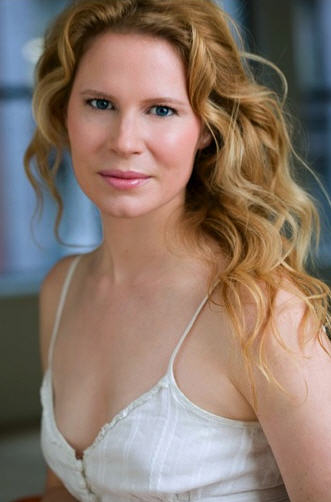


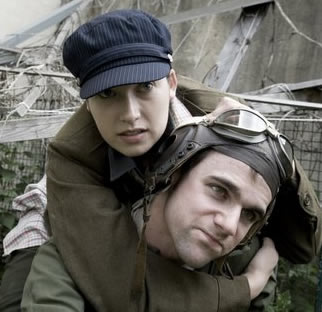

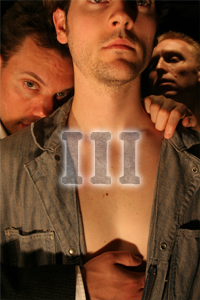
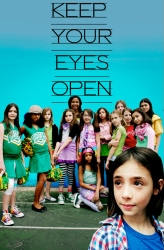
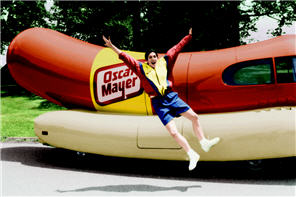
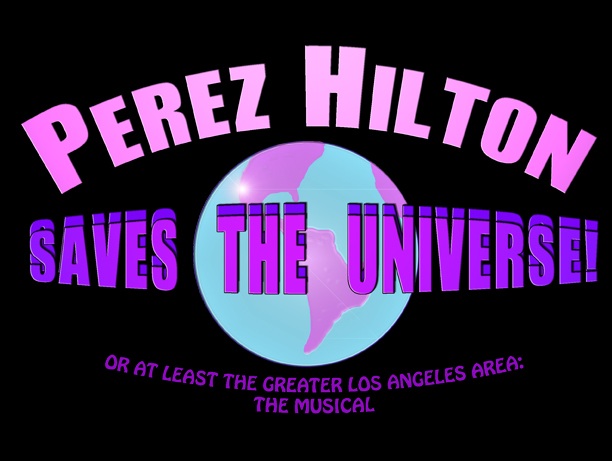
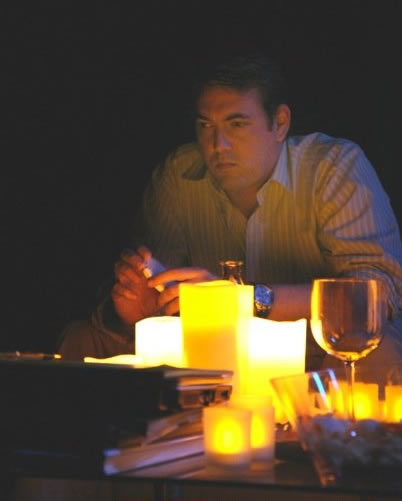
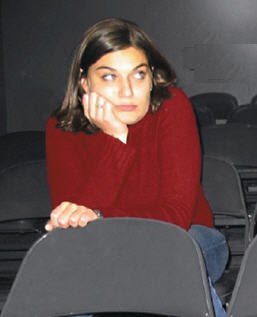
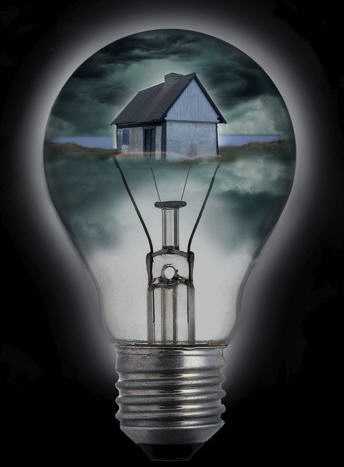

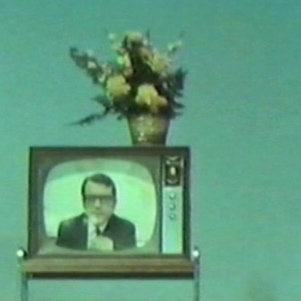
This year's FringeNYC festival concluded on August 24th, but that's not the end of a number of its shows.
There were quite a few productions worthy of going on to commercial runs, and it's a sure bet at least some of them will.
And more immediately, 12 FringeNYC shows were extended to run from August 28th through September 16th, with the performances taking place at the West Village's Soho Playhouse and Barrow Street Theatre.
Tickets were $18 each at the door.
Alternatively, you could purchase tickets for $18 each online via Web site FringeNYC-Encores.com or by calling (212) 691-1555.There's normally a $3 per-ticket service charge for advance sales. However, you could avoid this by using code ST (when ordering online, type ST into the Promotional Code box on the right). This gave you the convenience of buying in advance without having to pay even a penny extra for your tickets.
I've seen all 12 of the Encore shows, and they're almost all worthwhile. (You can click any of the following underlined titles to pop up my review of its show.) In rough order of personal preference, they are That Dorothy Parker (my favorite one-woman show of the festival), Blanche Survives Katrina In a FEMA Trailer Named Desire (a clever dark comedy, written and performed by Baton Rouge native Mark Sam Rosenthal, which imagines what would happen if Blanche DuBois lived in New Orleans during the aftermath of Hurricane Katrina), There Will Come Soft Rains (a lyrical version of science fiction tales by SF giants Stanislaw Lem and Ray Bradbury), Krapp 39 (a poignant look back at life choices), The Fabulous Kane Sisters in Box Office Poison (a wild farce of a play with drag, burlesque comedy, and such lines as "I lost my virginity a long time ago, but I still have the box it came in"), The Boy in the Basement (a comedy sex romp parodying romance novels with actresses Lynne Rosenberg and Katharine Heller—Heller's also the playwright—who were the shining stars of last year's best FringeNYC show, Naked in a Fishbowl), The Complete Performer (a quirky and hilarious stand-up comedy parody of NYC small-venue shows from Ted Greenberg, the Emmy Award winning writer for seven seasons of Late Night with David Letterman), Perez Hilton Saves The Universe (a musical farce with several breathtakingly talented comedic actor/singers), Monsters in the Wood (an autobiographical show in which Brad Lawrence tells tales of his self-destructive "white trash" relatives), JohnPaulGeorgeRingo (a one-man show in which Dave Jay impersonates all the Beatles and answers audience questions directed at the Fab Four), See How Beautiful I Am: The Return of Jackie Susann (a one-woman show about the mega-selling author of Valley of the Dolls that offers solid acting but, like its subject, is not particularly deep), and The Redheaded Man (an ambitious multimedia dramedy that's a well-intentioned misfire).
Encore Series Shows & Showtimes
The titles, venues, and remaining showtimes for all the productions selected for extension were as follows:
The West Village theatres where the FringeNYC 2008 Encore Series shows were being performed are:
Please note that these extra performances were not organized by the folks who run FringeNYC, but by Britt Lafield and John Pinckard. To learn more, please visit FringeNYC-Encores.com and click the About Us/Staff option.
Please also note that while they're not part of the Encore Series, two FringeNYC 2008 shows also enjoyed extended runs.
Specifically, The Death of the Ball Turret Gunner played at 8:00 pm in September at The Space, 42-16 West Street in Long Island City, Queens. (Nearest subway stops are the N/W/7 train at Queensborough Plaza and the G/E/V/R train at Queens Plaza on the southeast corner of Queens Boulevard and Jackson Avenue.)
And Kansas
City or Along the Way played at 8:00 pm in September
at The Access Theater,
380 Broadway at White Street (two blocks south of Canal Street),
4th Floor. For my review, please click here.
The FringeNYC extensions were a great chance to catch shows missed during the festival; and also an opportunity to take friends to productions you saw during the festival and loved.
The primary source of information about the festival is the official Web site at FringeNYC.org. More specifically:
Also, two venue guide notes:
Opinions about fast food are way more subjective than theatre reviews. That said, if you're seeking quick nourishment before racing to your next show, here are some personal favorite eateries located in FringeNYC venue neighborhoods:
None of these stores have any idea I'm saying this, by the way; but if you're hunting for the best shows, you might as well consume the best fast food while you're at it...
This year's FringeNYC was wonderful. And there's always the hope the next one will be even better.
And, who knows, you might even want to participate in it yourself.
The 13th Annual New York International Fringe Festival is scheduled to run August 7-24, 2009.
Applications to have a show in the 2009 festival are slated to be available online in November 2008; and completed applications are expected to be due by February 14, 2009.
But as Producing Artistic Director Elena K. Holy frequently says, whether you're in a production, a FringeNYC volunteer, a member of the audience, or in some other way involved, your being part of the performing arts community is truly appreciated...and the foundation on which depends the festival's success.
Please click the links below to jump directly to what you're after:
Best Video Promos & Sneak Peeks
Notable FringeNYC Comedy Shows
Shows That Sold Out Performances
Other Sites:
FringeNYC 2008 Coverage, Page 1
Copyright © 2008 Hy Bender
Email: hy@hyreviews.com